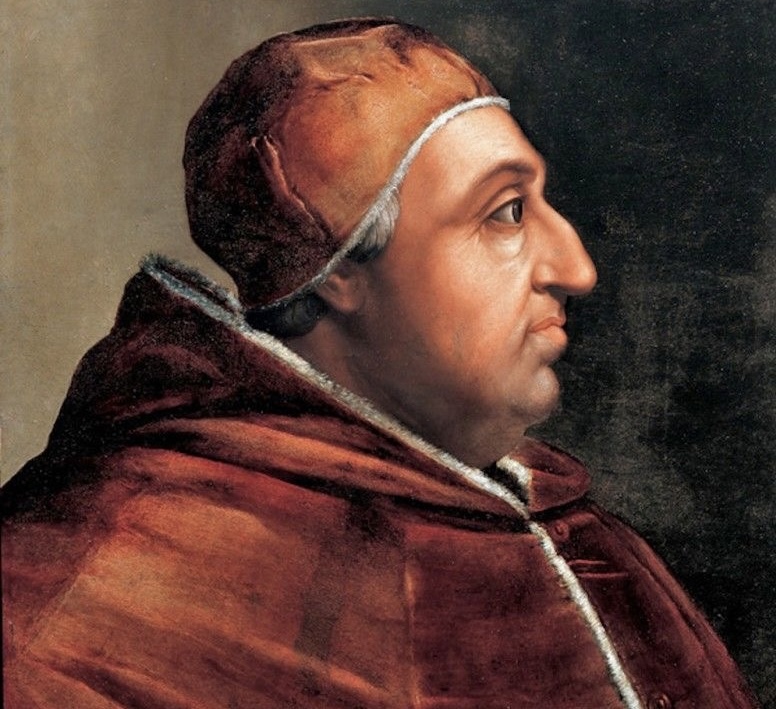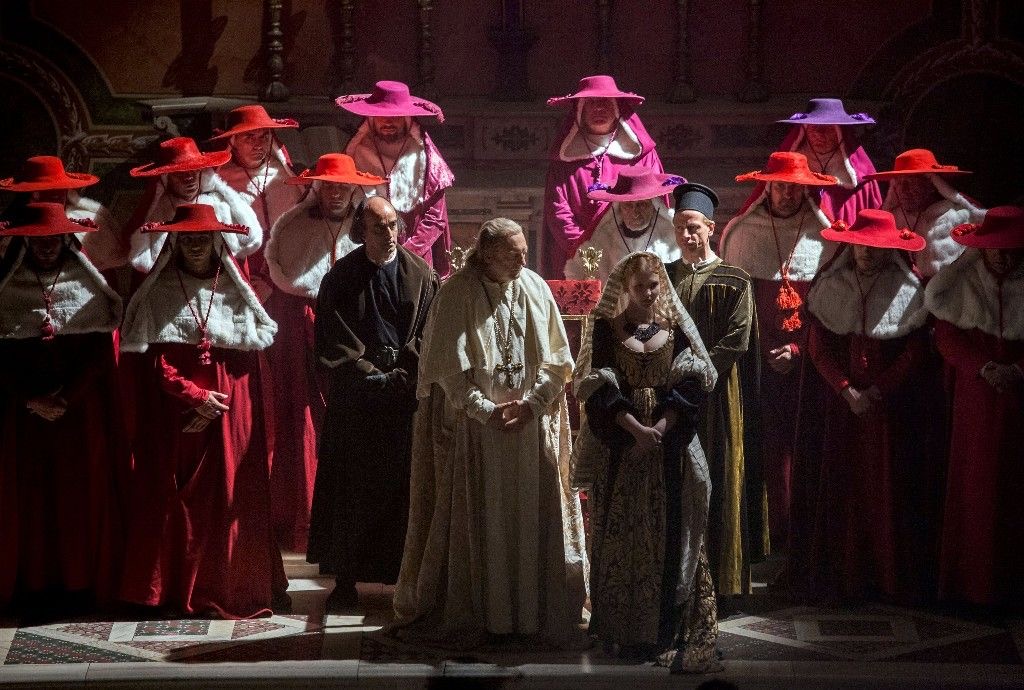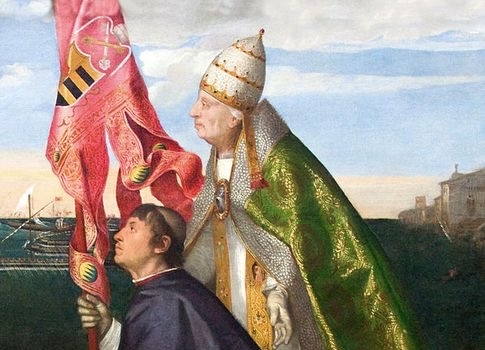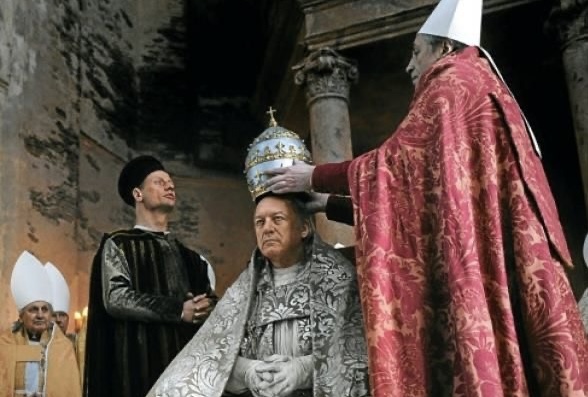When we think of popes, most people usually picture a wise old man in a white robe, blessing crowds in St. Peter’s Square, preaching about peace on earth, and maybe smiling sweetly at babies dressed up like tiny bishops.
What we do not imagine is a pope slipping money under the table, whispering about murderous plots, and hosting wild parties inside the Vatican walls. Well, don’t be too surprised to find that this type of pope existed, and he carried out these acts, but this was way back in 1492.
In 1492, Rodrigo Borgia, a cunning Spanish-born cardinal, did something that shocked even the already corrupt Renaissance church. He bribed, lied, and schemed his way onto the papal throne. Once he was crowned Pope Alexander VI, he did not become the shepherd of souls as he should’ve been. Instead, he became the Godfather of Rome.
This is the story of how the Vatican turned into a family business, one filled with poison, mistresses, and enough drama to make a Netflix series.
The Vatican in the 15th Century
Before we delve into how Rodrigo Borgia became a pope, we must first understand what the Catholic Church looked like in the 15th century.

Spoiler Alert!!! It wasn’t exactly holy.
Bribes, deals, and blackmail often carried more weight than prayers or votes from heaven.
The papacy was not just about religion; it was about politics, land, and money. Back then, popes ruled central Italy like they were kings. They collected taxes, waged wars, and formed alliances between powerful kingdoms. If you had lived in Rome during that period, you probably wouldn’t have seen the Vatican as a “House of God.” It would have looked more like a “House of Thrones.“
The worst thing is that many of the cardinals, that is, the men who were supposed to elect the pope through divine inspiration, were known to be notoriously greedy. Bribes, deals, and blackmail often carried more weight than prayers or votes from heaven.
So, when Pope Innocent VIII died in 1492, the papal election was not a holy conclave; it was a bidding process. And since we all know that in an auction the highest bidder wins, Rodrigo Borgia came in with more gold, more promises, and more shameless ambition than anyone else.
Meet Rodrigo Borgia: The Vatican’s Smooth Operator
Rodrigo Borgia was not new to Rome’s power games. He was born in Spain in 1431 as the nephew of Pope Callixtus III, who appointed him a cardinal when he was barely in his twenties.
From there, Rodrigo climbed the Church ladder successfully, not because he was a saint, but because he was clever, charming, and most importantly, he knew how to make people owe him favors.

Rodrigo had three great weapons. He had his money, his charisma, and his utter lack of shame. He openly kept mistresses, which we all know is forbidden for priests, he fathered several children, and lived like a Renaissance prince instead of a man of God.
However, none of that stopped his rise, because Rome was already full of people just like him; the only difference was that they were less talented at the game. By the time 1492 rolled around, Rodrigo was one of the most powerful cardinals in the Vatican, and when Pope Innocent VIII died, he saw his chance.
The Papal Election of 1492: God’s Will for Sale
This is how it works. When the pope dies, the Cardinals would lock themselves inside the Sistine Chapel for a conclave. They were supposed to pray, seek the Holy Spirit’s guidance, and then cast their votes for the new pope. Things didn’t exactly unfold this way for the papal election that took place in 1492.
In Rodrigo’s conclave, prayers were background noise. What really mattered was who paid the highest price.
He promised them estates, castles, and gold in exchange for something important; their votes.
Rodrigo opened his vaults and began distributing bribes like party favors. He made heavy promises to rich benefices, that is, church offices that came with fat incomes. He promised them estates, castles, and gold in exchange for something important: their votes.
One famous example was when he bribed Cardinal Ascanio Sforza with four mules that were loaded with silver and the promise of the lucrative position of Vice Chancellor of the Church. Another cardinal was offered an entire palace. It didn’t end there; another one received land in exchange for his loyalty.
By the end, Rodrigo’s campaign was not a “holy conclave,” it was more like a “shady real estate auction,” and it worked for him. On August 11, 1492, Rodrigo Borgia was elected Pope Alexander VI.
It might not have been a divine choice, but it was the most expensive papal election in history.
Pope Alexander VI: A Family Man in All the Wrong Ways
Once in power, Alexander VI did not even try to pretend to play the role of a holy father. Instead, he became the literal father of children whom he wanted to establish as Renaissance royalty.
Cesare: The Pope’s Son Who Wanted to Be King
Cesare Borgia was Alexander’s favorite son. He was handsome, brilliant, and utterly ruthless, so he made Cesare a cardinal when he was just 18 years old. But there was a problem.
With papal money and troops at his back, Cesare carved out a small empire in central Italy.
Cesare had no interest in the Church. What he wanted was power on the battlefield, and eventually, Alexander allowed him to abandon the red robes and become a military commander. With papal money and troops at his back, Cesare carved out a small empire in central Italy.
He conquered cities and crushed rivals. He was so cunning and merciless that Niccolò Machiavelli used him as the model for his famous political handbook titled The Prince. Cesare was like a new king who was born out of papal power.

Lucrezia: Angel, Poisoner, or Victim?
Then there was Lucrezia Borgia, Rodrigo’s daughter, who history has painted as everything from an innocent pawn to a deadly femme fatale. Lucrezia was married off several times to strengthen Borgia alliances, and with each marriage, she brought wealth or political advantage to her father.
There was gossip that claimed that she often carried a hollow ring filled with poison, and she was always ready to pour it into the cup of anyone who crossed the family. Some even whispered that she had incestuous she was relationships with both her father and brother.
Was any of it true? Probably not. Lucrezia was most likely a young woman who was trapped in her family’s schemes and used as a bargaining chip in her father’s ruthless game. However, the rumors alone made her one of the most famous women of the Renaissance.
In the end, to Alexander, the papacy was not about saving souls; it was about building a Borgia dynasty with his children.
Poison, Power, and Papal Parties
The Borgias had a reputation for two deadly hobbies: poisoning and partying.
Poison was the family’s not-so-secret weapon. Enemies who stood in their way, or nobles who refused to cooperate, often had a habit of dropping dead after a shared meal or a sip of wine. The most famous legend was that of the poisoned chalice, a trick in which the Borgias supposedly laced sacred communion wine to quietly eliminate rivals.
The wildest part is that prizes were given to whoever could sleep with the most partners, and all of this happened in the papal palace.
While not every tale of papal poisoning is true, the Borgias’ reputation was so toxic that people genuinely believed that the pope’s family carried hidden poison rings. This prompted them to always carry antidotes whenever they were in the presence of the Borgias.

Then there were the parties. Alexander VI turned the Vatican into what some people called the most sinful palace in Europe. One of the most famous events was the “Banquet of Chestnuts.”
The Banquets of Chestnuts: The Vatican’s Wildest Party
According to reports, the pope’s son, Cesare, hosted a wild feast inside the Vatican where courtesans danced naked, and chestnuts were scattered on the floor for them to crawl after. The wildest part is that prizes were given to whoever could sleep with the most partners, and all of this happened in the papal palace.
Although historians debate how much of this story is true, as it may have been exaggerated by enemies, there is no smoke without fire. The rumor still shows how outrageous the Borgia reputation had become. Imagine the Vatican today throwing a bachelor party straight out of a scandalous HBO show. That is how shocking it was.
He bribed his way into power, flaunted mistresses, fathered children, and treated the papacy like a family business.
Under Alexander VI, the papacy could not be likened to a church; it was more like a crime syndicate. The pope made alliances with kings, launched wars against rivals, and used his children as pawns in a deadly game of power.
The Borgias were feared and hated across Europe, but they were also respected for how cunning they were. Cesare, in particular, became one of the most terrifying military commanders of that time. Machiavelli admired him and considered him the perfect example of ruthless political genius —the kind of leader who would do anything to maintain power.
The Fall of the House of Borgia
In 1503, just 11 years after he seized the papacy, Alexander VI suddenly fell ill, and theories started swirling immediately. Some people said he was poisoned by his rivals. Others whispered that he had accidentally drunk a poisoned cup meant for someone else, perhaps a case of karma.

Whatever the truth was, Pope Alexander VI died in agony, leaving behind a Vatican that was completely drenched in scandal. Not too long after his father’s death, Cesare, Alexander’s son and enforcer, lost the power he had.
The Borgias’ empire crumbled almost overnight. The family that once controlled the Vatican was scattered, and their dream of a lasting dynasty was destroyed.
Pope Alexander VI was probably the most corrupt pope in history. He bribed his way into power, flaunted mistresses, fathered children, and treated the papacy like a family business.
Yet, most people remember the Borgias not just for their sins, but also for how well they embodied the Renaissance spirit of ambition and how cunning they were. They were the dark reflection of their age; a time when art, politics, and religion were all fueled by money, passion, and power plays.
Today, the Borgia name still conjures images of poisoned chalices, forbidden love, and holy corruption.
Final Thoughts: Holy Robes, Deadly Daggers
Rodrigo Borgia did not wait for God’s choice. He simply bought his way into the property, turned Rome into his personal kingdom, and left one of the most infamous legacies in Church history behind.
His children, Cesare and Lucrezia, became popular symbols of ambition and scandal. His reign left behind one of the darkest stains on the history of the Catholic Church, but his story also reminds us of something bigger. It tells us that even the holiest robes can hide the deadliest daggers.
Alexander’s story shows how fragile even the most sacred institutions can be when greed and ambition prevail. However, it also gives us a tale that is so wild, so scandalous, and so dramatic that it still captivates us more than 500 years later.
The Vatican may have cleaned up its image since the days of Alexander VI, but the memory of the Borgia pope, the man who poisoned chalices and bought the papacy, still hovers over the history of the church like a dark shadow.
Do you think Rodrigo Borgia was history’s most corrupt pope or just the ultimate power player? Drop a comment and share this wild story.


